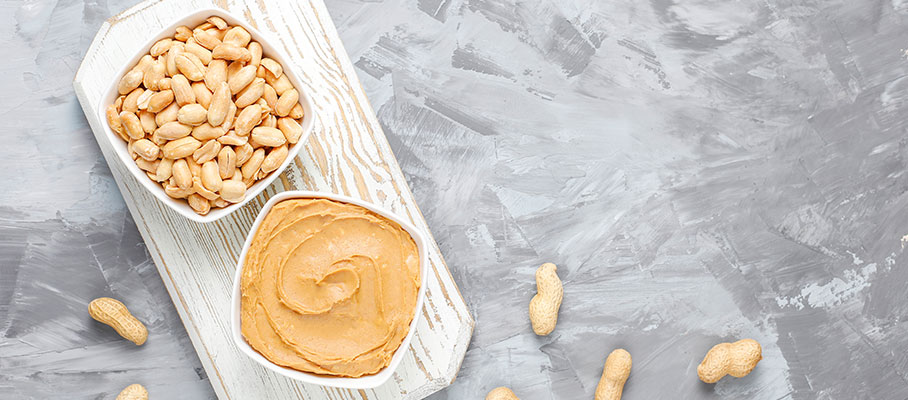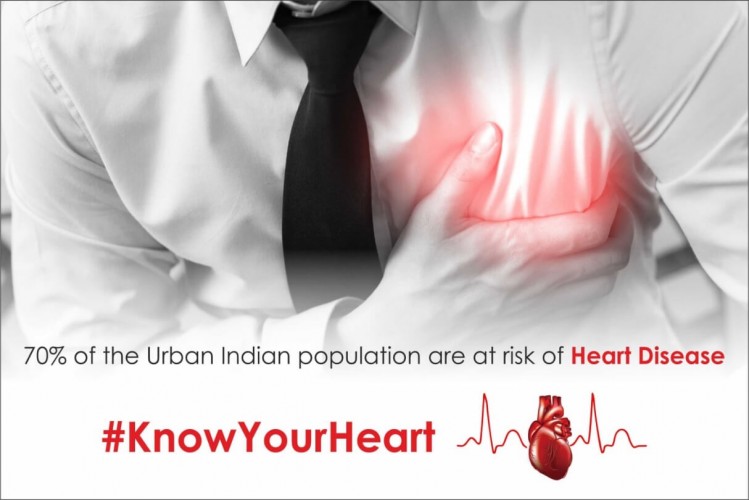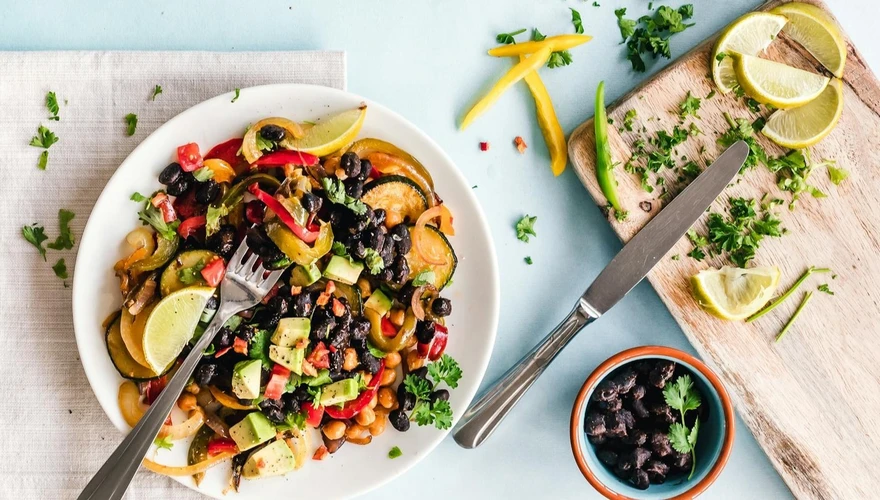healthy lifestyle
Is Peanut butter good for your health?
Is peanut butter a nutritious food? Is peanut butter a nutritious food? Many people out there have a tendency to binge on peanut butter either while working, reading, watching television, or after exercise. It is considered to be one of the world’s most famous spreads. Along with the taste, texture, and creaminess, the belief that it is less calorie-dense makes it everyone’s favorite. But this situation is not black and white; while some people might love peanut butter, there is a chunk of our population who may still be doubtful about it or even be allergic to it. Peanut butter is actually a good source that supplies carbohydrates, protein, niacin, magnesium, vitamin E, and fats and is an excellent plant protein. While some people consider having peanut butter for weight loss to satisfy the mini hunger pangs, others consume it for weight gain as post-workout snacks. So, it contains nutrients that can boost a person’s health, but is it high-calorie or low-calorie food? Can overeating peanut butter be safe or should it be consumed moderately? Let’s try to find answers to such important questions around peanut butter. Peanut butter for weight loss Around 2 tablespoons of peanut butter (nearly 32 g) provide around 200 calories. Now, this makes it look high on calories. However, it is nutrient-dense too, and this makes it a healthy option as compared to other processed foods that give equal amounts of calories. Remember not to binge or over-consume if you are trying to control weight. Moderation is the key as with other foods. You cannot eat as much peanut butter as you want on a daily basis if you are watching weight. Have promised yourself a healthy weight? First, get a health analysis done so you know where you stand before you start. Book a comprehensive lab test here. Health benefits of peanut butter It acts as a food that can help you maintain weight; having peanut butter makes you feel fuller faster because of the presence of monosaturated fats and protein making it a healthy food option. People looking to maintain or lose their weight should replace normal butter or cheese with peanut butter for its satiating property. Because peanut butter is high in calories, beneficial fats and protein, it can help keep you full for a longer duration. It lowers the risk of heart ailments and boosts your heart health owing to the presence of healthy fats like monosaturated fatty acids and polyunsaturated fatty acids. As per some studies, having a small portion of peanut butter every day can help decrease the occurrence of heart diseases by 38%. Since it has monosaturated fats, it is considered a wholesome spread with metabolism improving protein. It also has a special compound called genistein, which acts on the genes and helps in combating obesity. The compound can aid in reducing your body’s fat-storing ability, thus helping maintain your body weight and shape. Post a heavy and nice workout, when the muscles are sore and cramp, peanut butter comes to the rescue as it has a good amount of potassium. Potassium plays a key role in your muscle cramps and soreness removal. Two tablespoons of peanut butter contain nearly around 179 milligrams of potassium, which is considered a good amount of mineral for post-workout muscle recovery. People who have to count stars at night to get a goodnight’s sleep, ought not to do that anymore, a two-tablespoon serving of peanut butter can do the trick for you. It contains 74 milligrams of the amino acid tryptophan, which acts on the same grounds as serotonin and melatonin that helps in inducing sleep. For the many benefits it offers, some also include bone health improvement, getting glowing skin, and becoming more productive throughout the day. Peanut butter contains vitamin K, which acts as a lubricant for carrying calcium throughout the body, and nurturing overall bone health. If you want your skin to look young and dashing, Peanut butter comes as a savior as it improves your skin’s elastin that makes your skin firm and radiant looking always. Some easy ways to add Peanut butter to your diet- Stirring it into porridge Adding it to a smoothie Stirring into yogurts or warm oatmeal Spreading on whole-grain bread and topping with banana Dipping apple or pear slices into peanut butter as a classic snack When is the best time to consume Peanut Butter for your body To get the best out of your peanut butter jar, it is advisable to have it in the morning and avoid eating it late in the evening or at night. If you follow a fitness schedule, you should also try not to eat in at night as it contains carbs and fats that can adversely harm your routine. Have a spoon to three during peak day hours is also fine. Know when to stop A rule of thumb says concerning one to 2 tablespoons each day is sweet enough for a healthy individual, taken in any type. Going ahead with over 3-4 spoons can be a bit harmful to the body as it may weight gainWhile the benefits might be ample, it can have a few downsides that often go unnoticed compared to the numerous advantages mentioned above. Maintain a balance, don’t overdo Though peanut butter is a healthier alternative to regular butter, it is continuously advisable to eat it in a balanced amount and not binge eat the entire jar while watching Netflix. While there is a great deal of peanut butter manufacturing companies, one should always watch out for their buying choice, as a bunch of brands may contain added sugar, salt, or oil. Do check the ingredients label before you buy.
Know about your Heart on this World Heart Day 29th Sept 2018
Heart, the little organ sitting in our chest, works continuously throughout our life. It keeps on pumping and circulating blood in our body. While our heart works tirelessly to keep us going, we do our bit by damaging it in every possible way -many a times subconsciously. On World Heart Day which falls on 29th September, let us come together and make conscious efforts to know this very important organ and vow to take care of it. What is heart and what are its functions? The heart is a muscular organ that pumps blood and circulates it throughout our body, making up the circulatory system. The blood carries oxygen and nutrients to the body tissues which is the basic requirement of survival. What are the different ailments of heart? Heart failure is the deadliest among all the heart problems but to reach to that point the heart goes through a number of phases. It starts from Angina or chest pain due to blockage in the blood vessel supplying blood to the heart muscle. If remained untreated it may eventually lead to Myocardial Infarction or Heart Attack in common terms which happens because of death of cardiac muscle cells. Other ailments in this cycle are LVH (Left Ventricular Hypertrophy), IHD (Ischemic Heart Disease) and CHD (Congestive Heart Disease). Other ailments like Valve diseases and Cardiomyopathy are also common in the Indian Population. The most common of them all which leads to high rates of mortality and hospitalization, is Heart Attack. Let us understand what the possible indicators of the onset of heart attack could be. Signs and Symptoms of heart attack: Many people, who have a heart attack, pose with some warning signs while some remain totally asymptomatic. The early warning signs of a heart attack include: Breathlessness Cold Sweat Palpitation Pain in upper body parts Severe signs and symptoms include High to very high chest pain Severe pain in upper body parts, mainly shoulders and upper arms Nausea and Dizziness Heavy Breathing What are the risk factors of a heart attack? A heart attack can occur to anyone but there are some risk factors that enhance the susceptibility to an attack. They are categorized into Uncontrollable and Controllable risk factors. Uncontrollable risk factors: Age- In Today’s fast-moving world people as young as 35 years of age are also vulnerable, however the prevalence is more common in age group of 60+. Sex- Men are more susceptible as compared to women. However, post menopause, women become more susceptible. Race- People of African descent are more susceptible. Family History- People who have a family history of heart ailments are at a greater risk. Controllable risk factors: Smoking Alcohol consumption Obesity High cholesterol Unhealthy diet Lack of exercise High Sugar Levels Stress How can you prevent a heart attack? There are many risk factors that are not in your control but of course, there are risk factors which we can control. Following are some basic tips that keep away the chances of a heart attack. Adopting a healthy lifestyle should be the first step in dealing with the possible chances of a heart attack. Quitting the awful habit of smoking should be on top priority. Other things that can be done to improve the health of the heart are: Maintaining a heart-healthy diet There are many heart-healthy foods that cut off the chances of a heart attack. The best foods for heart health include: Fishes with high omega-3 content like salmon, mackerel, trout, herring, and tuna Nuts like almonds and walnuts Dark beans like black beans or kidney beans Berries like blueberries, cranberries, raspberries, and strawberries Red, orange, and yellow vegetables like carrots, red peppers, sweet potatoes, etc. Fruits like papaya, oranges, etc. Dark chocolate Flax seeds Tofu Regular workout Working out regularly is a must. Indulge in any physical activity like running, swimming, yoga, or a sport. Quit alcohol and smoking Alcohol consumption and smoking do irreparable damage to the heart. Quit them as soon as possible. Regular Check-ups Regular heart check-up is really necessary. Keep a tab on your lipid, sugar and weight levels. Consult your doctor at regular intervals. The Bottom Line Maintaining a proper heart health is the only thing that could keep us going. On this World Heart Day, come together and pledge that we will know our hearts and will always take care of it. https://www.youtube.com/embed/rlzFwUQhfHU
 Home Visit
Home Visit Upload
Upload
















 WhatsApp
WhatsApp